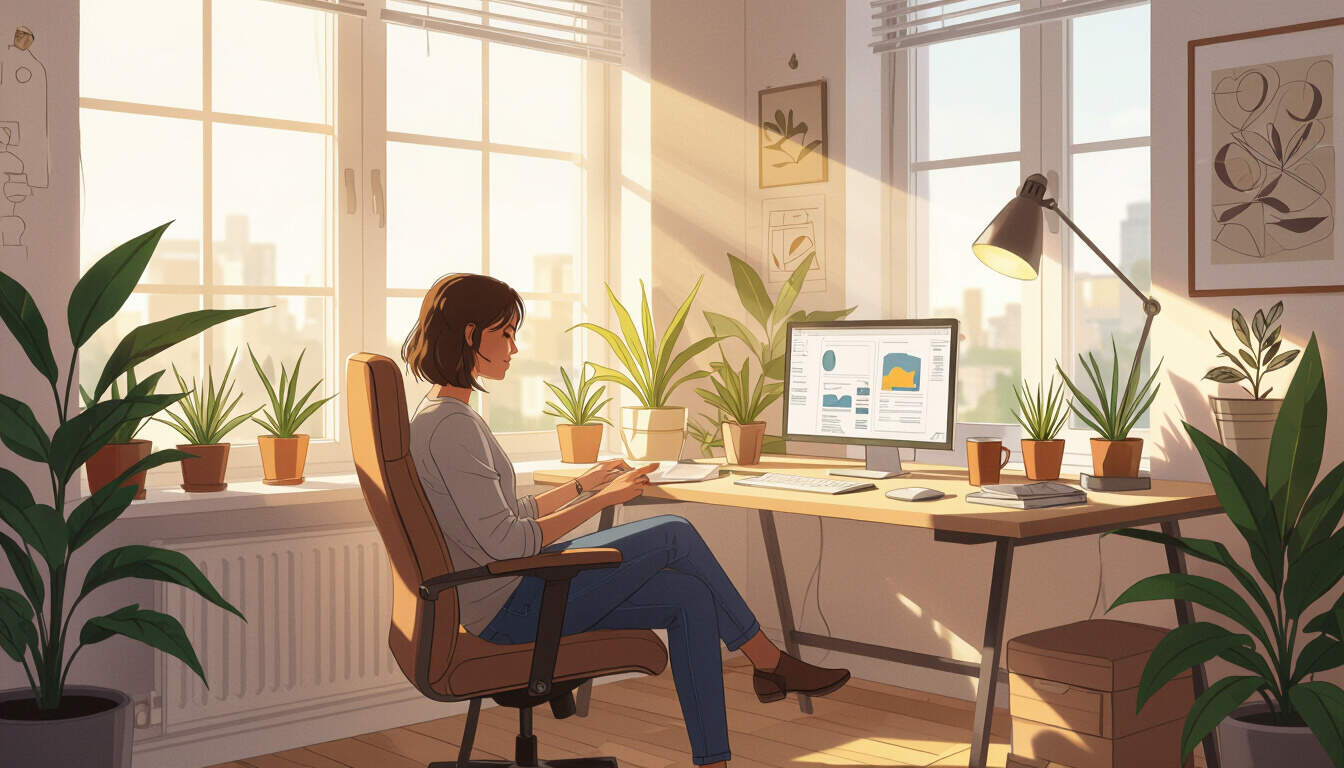Enhancing Focus with Natural Light in Workspaces
 by Shanie Goodwin
by Shanie Goodwin
Discover how natural light can ease cognitive load by improving concentration and reducing mental fatigue in daily routines. This article offers practical strategies for students and professionals to optimize their workspaces for better productivity and well-being.

In our busy lives, managing mental demands is essential for maintaining productivity. Natural light plays a key role in this by influencing our energy levels and focus. For instance, exposure to sunlight can help reduce the strain on our cognitive processes.
The Connection Between Natural Light and Cognitive Load
Natural light affects our brain's ability to process information. Studies show that brighter environments lead to better attention spans. This means that workspaces with ample sunlight might make tasks feel less overwhelming. Natural light can alter our internal rhythms, promoting alertness during work hours.
One way this works is through the regulation of our sleep patterns. Sunlight helps signal the body when to be active, which in turn supports clearer thinking. For professionals juggling multiple responsibilities, this can mean fewer distractions from fatigue.
Practical Tips for Incorporating Natural Light
To start, consider the layout of your workspace. Positioning your desk near a window allows for maximum sunlight entry. This simple change can create a more inviting atmosphere, making it easier to concentrate on tasks.
Another tip is to use sheer curtains or blinds that filter light without blocking it entirely. This ensures a steady flow of illumination throughout the day, which is especially useful for students studying long hours. Workspaces that are well-lit naturally often result in higher motivation levels.
For those in offices without many windows, adding mirrors can reflect light around the room. This technique bounces sunlight from available sources, brightening darker corners and reducing the need for artificial lighting. Over time, these adjustments can lead to noticeable improvements in mental clarity.
Benefits for Daily Life
Implementing these changes offers clear advantages. For example, workers in sunlit offices report feeling more refreshed after breaks. This refreshment helps in tackling complex projects with renewed energy, minimizing the buildup of stress.
Students, in particular, can benefit from natural light during exam periods. It aids in retaining information by keeping the mind sharp and reducing forgetfulness. Cognitive load decreases when the environment supports natural wakefulness, allowing for deeper engagement with study materials.
Professionals might notice enhanced creativity in meetings held in well-lit rooms. Ideas flow more freely when the space feels open and energizing. By prioritizing light, individuals can achieve a balance that prevents overload from daily pressures.
Overcoming Common Challenges
Sometimes, external factors like weather or building design limit access to sunlight. In such cases, scheduling outdoor walks during the day can supplement indoor light. A short stroll in the open air provides a quick boost to mental resources.
Additionally, pairing natural light with short rest periods can amplify its effects. Taking a moment to step away and breathe in fresh air helps reset the mind, making subsequent work sessions more effective.
Long-Term Strategies for Sustained Benefits
Building habits around natural light requires consistency. Start by tracking how light levels affect your daily performance. Over weeks, you may find patterns that guide better routines, such as starting work early when the sun is rising.
For teams in shared spaces, suggesting group activities like relocating meetings to brighter areas can foster a collective improvement. This shared approach encourages everyone to adopt practices that support overall well-being.
In summary, embracing natural light in workspaces is a straightforward way to manage cognitive demands. By making thoughtful adjustments, individuals can foster environments that promote focus and reduce fatigue. Whether you are a student or a professional, these steps pave the way for more productive days ahead.
To wrap up, remember that small changes add up. Experiment with these ideas and observe the positive shifts in your routine. The goal is to create spaces that nurture both mind and body, leading to a more balanced life.
